The Complete Oracle SQL Bootcamp (2024)
Loại khoá học: Database Design & Development
Become an In-demand SQL Professional! Pass Oracle SQL 1Z0-071 (OCA) Certification Exam Confidently!
Mô tả
Welcome to the MOST COMPREHENSIVE Oracle SQL Bootcamp Course on the planet!
Latest Course Updates:
(Jan 2024) : Brand New Content (Managing Oracle Privileges and Roles) was added!
(Dec 2023) : Brand New Content (Using Oracle FLASHBACK Technologies) was added!
(Sep 2023) : 3-Real SQL(Over 200+ High-Quality Questions) Certification Exam Samples are added!
(Aug 2023) : More Quiz Questions were added!
Important Notice: This course will be continuously getting updated with more lectures, quizzes, and assessments to enhance your knowledge of Oracle SQL.
Are you a student ready to learn SQL for your lessons?
Do you want to get a better job?
Are you bored with watching a lot of stuff, but could not learn anything?
Do you think you know SQL, but you cannot write SQL codes?
Are you looking for a really professional course?
Then this is the course you are looking for.
You are in the right place!
In this course, all the subjects are explained in professional order.
If you are new to SQL, no problem! You can easily learn all the details of SQL. If you already know SQL and want to improve, this course explains all the details including all of the subjects.
After completing this course, you will learn all that you need to know. If you don't see something in this course, it means you really don't need to know it for now.
Coding can be learned with coding. A course that has no example is not a course at all. And there are hundreds and hundreds of codes in this course.
So come on, what are you waiting for?
Get this course, and go get a better job!
Topics covered in the Complete Oracle SQL Bootcamp 2023 Course:
Database Concepts & Terminologies
What is a Database?
What is the Oracle Database?
What is a pluggable database?
What is SQL?
What is a database table?
What is Relational-Database Management System (RDBMS)?
What is the Entity-relationship model in SQL?
What is a database schema?
Installing Oracle Sample Schemas (HR, SH, OE, IX, etc.)
Introduction to Database Objects
Downloading and Installing the Oracle Database (Version 12c, 18c, 19c, 21c, etc.)
Downloading the Oracle Database Installation File
Installing Oracle Database into Your Local Computer
Working with a Database via a Virtual Machine
Downloading and Installing a Virtualization Software (Virtual Box, VMWare)
Downloading Pre-built Virtual Machine Image
Importing Virtual Machine into Virtualization Software
Configuring, Using, and Working with Virtual Machines through Virtualization Software
Downloading, Installing, Configuring, and Using the Oracle SQL Developer Software
Connecting to the Oracle Database Using SQL Developer and SQL Plus
Configuring SQL Developer for the first use
Configuring Network Connections to work with Oracle Sample Schemas
Working with Oracle Live SQL
Introduction to Oracle Live SQL Platform
How to use Oracle Live SQL
Retrieving Data from the Database Using SELECT Statements
What is NULL?
SELECT Statements
Using Column Aliases in SQL
DISTINCT and UNIQUE Operators in SQL
Concatenation Operators in SQL
The Quote (q) Operator in SQL
Filtering & Restricting Data returned by SQL Queries using the WHERE Clause
Using the WHERE Clause in SQL
Using Oracle Comparison Operators in SQL
BETWEEN AND Operator in SQL
IN Operator in SQL
LIKE Operator in SQL
IS NULL Operator in SQL
Logical Operators in SQL:
AND Logical Operator
OR Logical Operator
NOT Logical Operator
Oracle Rules of Precedence in SQL
Sorting Data using the ORDER BY Clause
Using the ORDER BY Clause
Using the ASC and DESC Operators
Using the NULLS FIRST and NULLS LAST Operators
Using the FETCH Clause
Using Oracle Substitution Variables
What are Substitution Variables?
Double Ampersand (&&) and DEFINE & UNDEFINE Commands
ACCEPT and PROMPT Commands
SET VERIFY ON / SET VERIFY OFF Commands
Using Oracle Single-Row Functions to Customize the Query Outputs
Introduction to Oracle Single-Row Functions
Character Functions
Case Conversion Functions
UPPER Function
LOWER Function
INITCAP Function
Character Manipulation Functions
SUBSTR Function in SQL
LENGTH Function in SQL
CONCAT Function in SQL
INSTR Function in SQL
TRIM Function in SQL
LTRIM and RTRIM Functions in SQL
REPLACE Function in SQL
LPAD and RPAD Functions in SQL
Numeric Functions
ROUND Function in SQL
TRUNC Function in SQL
CEIL Function in SQL
FLOOR Function in SQL
MOD Function in SQL
Nested SQL Group Functions
Date Data Types and SQL Date Functions
Date Data Types
DATE Data Type in SQL
TIMESTAMP Data Type in SQL
TIMESTAMP WITH TIME ZONE Data Type in SQL
TIMESTAMP WITH LOCAL TIME ZONE Data Type in SQL
Oracle Date Functions
SYSDATE Function in SQL
CURRENT_DATE Function in SQL
SESSIONTIMEZONE Function in SQL
SYSTIMESTAMP Function in SQL
CURRENT_TIMESTAMP Function in SQL
Date Manipulation Functions
ADD_MONTHS Function
MONTHS_BETWEEN Function
ROUND Function
TRUNC Function
EXTRACT Function
NEXT_DAY Function
LAST_DAY Function
Oracle Conversion Functions
TO_CHAR Function in SQL
TO_NUMBER Function in SQL
TO_DATE Function in SQL
Null Related Functions in SQL
NVL Function
NVL2 Function
NULLIF Function
COALESCE Function
Conditional Expressions in SQL
CASE Expressions in SQL
DECODE Function in SQL
Reporting Aggregated Data Using the Group Functions
Introduction to Oracle Group Functions
AVG Function in SQL
COUNT Function in SQL
MAX Function in SQL
MIN Function in SQL
LISTAGG Function in SQL
Overview of Group Functions in SQL
Displaying Data from Multiple Tables Using Joins
What is a SQL Join?
Join Types in Oracle SQL
How to Create a Join in SQL
Natural Join
Join with the USING Clause
Handling Ambiguous Column Names While Joining Multiple Tables
Inner Join (Join with the ON Clause)
Multiple Join Operations
Restricting Joins
Self-Join
Non-Equijoins (Joining Unequal Tables)
Outer Joins in SQL
LEFT OUTER JOIN (LEFT JOIN)
RIGHT OUTER JOIN (RIGHT JOIN)
FULL OUTER JOIN (FULL JOIN)
Cross Join (Cartesian Product or Cross Product)
Oracle's Old Style Join Syntax (Comparison of ANSI vs. Non-ANSI SQL Join Syntaxes)
Using & Building & Analyzing Subqueries
What is a Subquery in SQL?
How to Use Subqueries in SQL?
Subquery Types in SQL:
Single-Row Subqueries in SQL
Multiple-Row Subqueries in SQL
Multiple-Column Subqueries in SQL
SCALAR Subqueries in SQL
Correlated Subqueries in SQL
Using Subqueries as a Table
Using the EXISTS Operator (Semijoins in SQL)
Using the NOT EXISTS Operator
Working with Oracle SET Operators
What are SET Operators and Why are They Used?
UNION Operator
UNION ALL Operator
MINUS Operator
INTERSECT Operator
Combining Multiple Queries Using Multiple SET Operators in Complex SQL Queries
Using Data Manipulation Language (DML) Statements
INSERT Statement
UPDATE Statement
DELETE Statement
MERGE Statement
Multiple INSERT Statements
Unconditional INSERT (INSERT ALL) Statements
Conditional INSERT ALL Statements
Conditional INSERT FIRST Statements
Pivot Insert in SQL
Using Transaction Control Language (TCL) Statements
What is a transaction in SQL?
TCL Commands
COMMIT and ROLLBACK Statements in SQL
Row Locking Mechanism in SQL
SAVEPOINT Statement in SQL
FOR UPDATE Statement in SQL
Using Data Definition Language (DDL) Statements
What are Data Definition Language Statements
Naming Rules & Naming Conventions in Oracle
Creating Tables using the CREATE TABLE statements
CREATE TABLE AS SELECT (CTAS) Statement in Oracle
ALTER TABLE Statement
Marking Columns Unused (Using The SET UNUSED Clause)
READ-ONLY Tables in SQL
DROP TABLE Statement
TRUNCATE TABLE Statement
COMMENT Statement
RENAME Statement
Creating, Using, Working, and Managing Constraints
What is a Constraint in SQL?
Oracle Constraint Types
NOT NULL Constraint
UNIQUE Constraint
PRIMARY KEY Constraint
FOREIGN KEY Constraint
The ON DELETE CASCADE Clause
The ON DELETE SET NULL Clause
CHECK Constraint
Adding Constraints via ALTER TABLE Statements
Dropping (Removing) Constraints
Cascading Constraints in Oracle
Renaming Constraints
Enabling / Disabling Constraints
Status of Constraints
Deferring (Deferrable) Constraints
Creating, Using, and Managing Database Views in Details
What is a Database View and What is it Used for?
View Types in Oracle
Creating Simple Views
Creating Complex Views
Modifying Views
Performing DML Operations with Views
Using the WITH CHECK OPTION Clause in SQL
Using the WITH READ ONLY Clause on Views
Managing Objects Using Oracle Data Dictionary Views
What are Data Dictionary views in Oracle?
The DICTIONARY View (The Main Dictionary)
USER, ALL, DBA, and V$ Prefixes in Data Dictionary Views
USER_OBJECTS, ALL_OBJECTS, and DBA_OBJECTS Views
USER_TABLES, ALL_TABLES, and DBA_TABLES Data Dictionary Views
USER_TAB_COLUMNS Data Dictionary View
USER_CONSTRAINTS Data Dictionary View
USER_CONS_COLUMNS Data Dictionary View
USER_VIEWS Data Dictionary View
USER_TAB_COMMENTS and USER_COL_COMMENTS Data Dictionary Views
Creating and Using, Working with Sequences in SQL
What is a Sequence?
Creating Sequences
Modifying Sequences
Using Sequences
Using Sequences as Default Values
Sequence Caching
The USER_SEQUENCES View
Using the IDENTITY Column in Oracle
Creating and Using Synonyms
Working with Indexes
Managing Schema Objects
Retrieving Data By Using Subqueries
Manipulating Data By Using Subqueries
Controlling User Access in Details
Managing Data in Different Time Zones
BENEFITS OF TAKING THIS SQL COURSE:
Knowing SQL can get you a better job or improve the one you have and it can earn you 150k+ (USD) per/year in the IT Industry. It's a skill that will put you more in demand in the biggest technology companies in the IT industry, and make your software life easier, this is why it's so popular and backed by Oracle.
This course will help you quickly get up to speed with Oracle SQL. I will demystify the query skill and help you understand the essential concepts of how to write SQL codes easily and think analytically against the problem in your company.
STUDENT REVIEWS PROVE THIS COURSE'S WORTH:
Those who have reviewed the course have pointed out that the instruction is clear and easy to follow, as well as thorough and highly informative. Other students enjoy the use of relevant examples throughout the course, as these make the content even easier to comprehend.
Many students had also taken other SQL courses in the past, only to find that this SQL course was their favorite. They enjoyed the structure of the content and the high-quality audio/video.
Check out all of the great reviews in the review section ... a lot of happy students :-)
IMPORTANT NOTE:
Knowing SQL is "mandatory" for any IT Professional and having good SQL knowledge will be a "GREAT PLUS" for you!
If you want to Become a Job-Ready SQL Professional who can pass any Oracle SQL Exam confidently, this course will be the next step for you!
So let’s do this! I'll see you in the first lecture!
Bạn sẽ học được gì
Pass Oracle 1Z0-071 SQL Database SQL Certification Exam easily on your first try!
Be Able to Answer any SQL Interview Questions Confidently!
Become a Job-Ready SQL Developer by Learning All the Skills You will Need!
Learn Oracle SQL by Professionally Designed Content Step by Step!
Write, Read and Analyze Any SQL Queries Easily and Learn How to Play with Data!
Solve any SQL-related Problems by Yourself Creating Analytical Solutions!
Test Your SQL Skills with Hundreds of Hands-on Examples, Quizzes, Challenges!
Lifetime Support from the Instructors. Get a Well-Organized Recap Document!
Yêu cầu
- Nothing more than a working computer; all PC, Mac or Linux, etc. users are all welcome.
- No previous programming experience is required!
- No paid tools are required!
Nội dung khoá học
Viết Bình Luận
Khoá học liên quan

Đăng ký get khoá học Udemy - Unica - Gitiho giá chỉ 50k!
Get khoá học giá rẻ ngay trước khi bị fix.

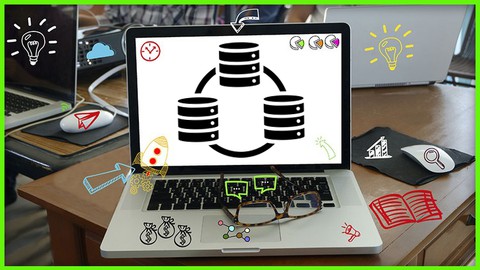




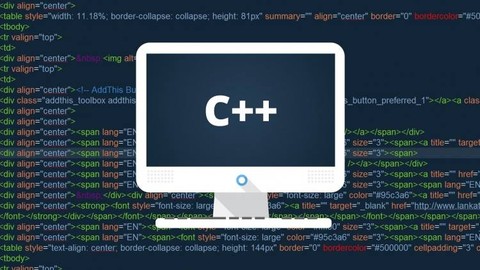


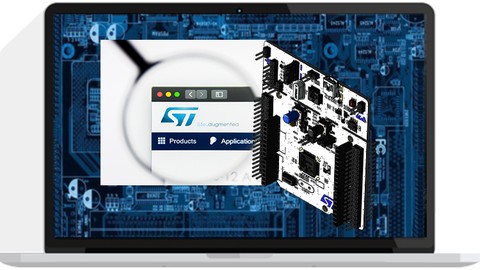


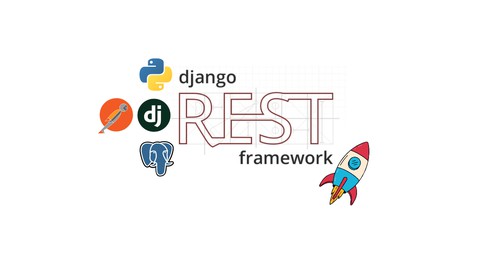




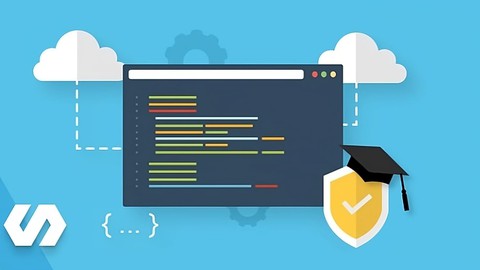
Đánh giá của học viên
Bình luận khách hàng